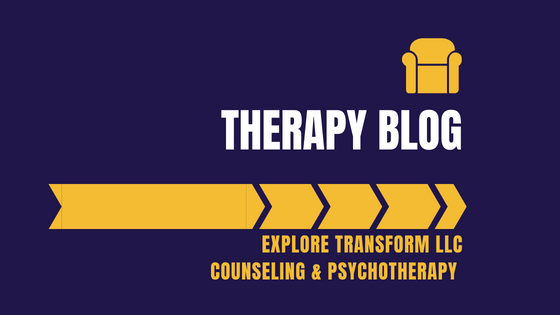|
We need safety. Without feeling safe, our nervous system activates protective responses (we become over-activated or under-activated, we become anxious or shut-down). When these protective responses are activated, it is hard to connect to others, to stay focused on conversations, to become intimate, and to trust others.
It can really help when we understand that our responses, in body and mind, are because we are hard-wired to respond that way. If we cannot sense safety in our environment, it is inevitable that we will try to fight or flee the danger, and if we cannot escape, we will shut-down, so we do not feel the full force of that danger. What I am explaining has been conceptualized by Dr Stephen Porges as a sympathetic nervous system (fight or flight) and a dorsal vagal response (shut-down). According to Polyvagal Theory (Dr Stephen Porges), depression is a dorsal vagal response, and anxiety is a sympathetic response. Depression is under-activation or hypo-activation, and anxiety is over-activation or hyper-activation. Only when we sense safety can we connect with others. This makes sense because we are hardly going to have a chat with a friend, make love, or watch a favorite movie if fear that we are in mortal danger. The trouble is, when we have experienced trauma, the slightest smell, sound, touch, or image can activate these protective responses. When you work with a trauma therapist who uses Polyvagal Theory, they will help you to identify your own nervous system, and when you have been in a shutdown (dorsal vagal) state, when you have been hyperaroused (a sympathetic state), and when you have been in a more connected, ventral vagal state. For example, when you are in the sympathetic state, you might notice that you talk quickly or have racing thoughts, or you feel more angry. In the dorsal vagal state, you might notice that you are sleepy or blank-minded, or your breathing is slow, and in the ventral vagal state, you might feel warm, contented, or peaceful. Some therapists like the analogy of your nervous system as a ladder; at the top is the ventral vagal state, the most evolved. This is when we feel connected to ourselves and others, and it is only activated when we feel safe. The vagus nerve runs up from the brain down to the abdomen, so breathing and tapping exercises are helpful to activate this nerve. Some have even referred to the vagus nerve as the compassion nerve. At the middle of the ladder is the less evolved sympathetic state of fight or flight, and then at the bottom, the least evolved part, is the shutdown dorsal vagal state. Once you have identified your differing states, it can be useful to complete the following sentences for each state (whether that is dorsal vagal state, sympathetic state, or ventral vagal state): When I am in this state, I am…. And When I am in this state, the world is… Your trauma therapist will also help you to move out of a shutdown (dorsal vagal) or hyperaroused (sympathetic) state into a more connected, ventral vagal state. For example, they might help you to remember a moment when you felt safe and calm, and they will encourage you to bring this moment back using an image of that memory. If you cannot find such a time, your therapist might help you to create one. Some people even find the visualization of a certain color calming. Trauma work is not just about the client. The therapist needs to be attuned to your state (whether it is shut-down, activated, or calm), but that therapist also needs to identify their own state. This is why, unlike many other professionals, experienced trauma therapists truly practice what they preach; they do the work and become attuned to their own body and mind by doing many of the things that they might suggest for you to try in therapy. For example, they engage in mindfulness exercises, breathing and grounding exercises, and they engage in their own extensive personal therapy. I hope you found this useful. Please reach out if you would like to explore this further. Chris Warren-Dickins LLB MA LPC Explore Transform LLC Counseling and Psychotherapy in Bergen County, New Jersey www.exploretransform.com +1 (201) 779-6917 #EMDR, #FindanEMDRtherapist, #Polyvagal, #PolyvagalTherapist, #EMDRTherapy, #EMDRTherapist, #TraumaTherapy, #FindATraumaTherapist, #HealingFromTrauma, #FindATherapist, #ridgewood, #BergenCounty, #NewJersey, #teletherapy, #FindACounselor, #Counseling, #Psychotherapy, #MentalHealth, #Depression, #Anxiety, #Trauma, #Stress Comments are closed.
|
Due to the COVID-19 health crisis, we are only offering sessions online.
Our address is 143 E Ridgewood Ave, #1484, Ridgewood, NJ 07450
Telephone: +1-201-779-6917
Lead clinician: Chris Warren-Dickins LLB MA LPC
EXPLORE TRANSFORM LLC
Our address is 143 E Ridgewood Ave, #1484, Ridgewood, NJ 07450
Telephone: +1-201-779-6917
Lead clinician: Chris Warren-Dickins LLB MA LPC
EXPLORE TRANSFORM LLC
© COPYRIGHT 2024 CHRIS WARREN-DICKINS. ALL RIGHTS RESERVED. NJ LICENCE # 37PC00618700



 RSS Feed
RSS Feed
